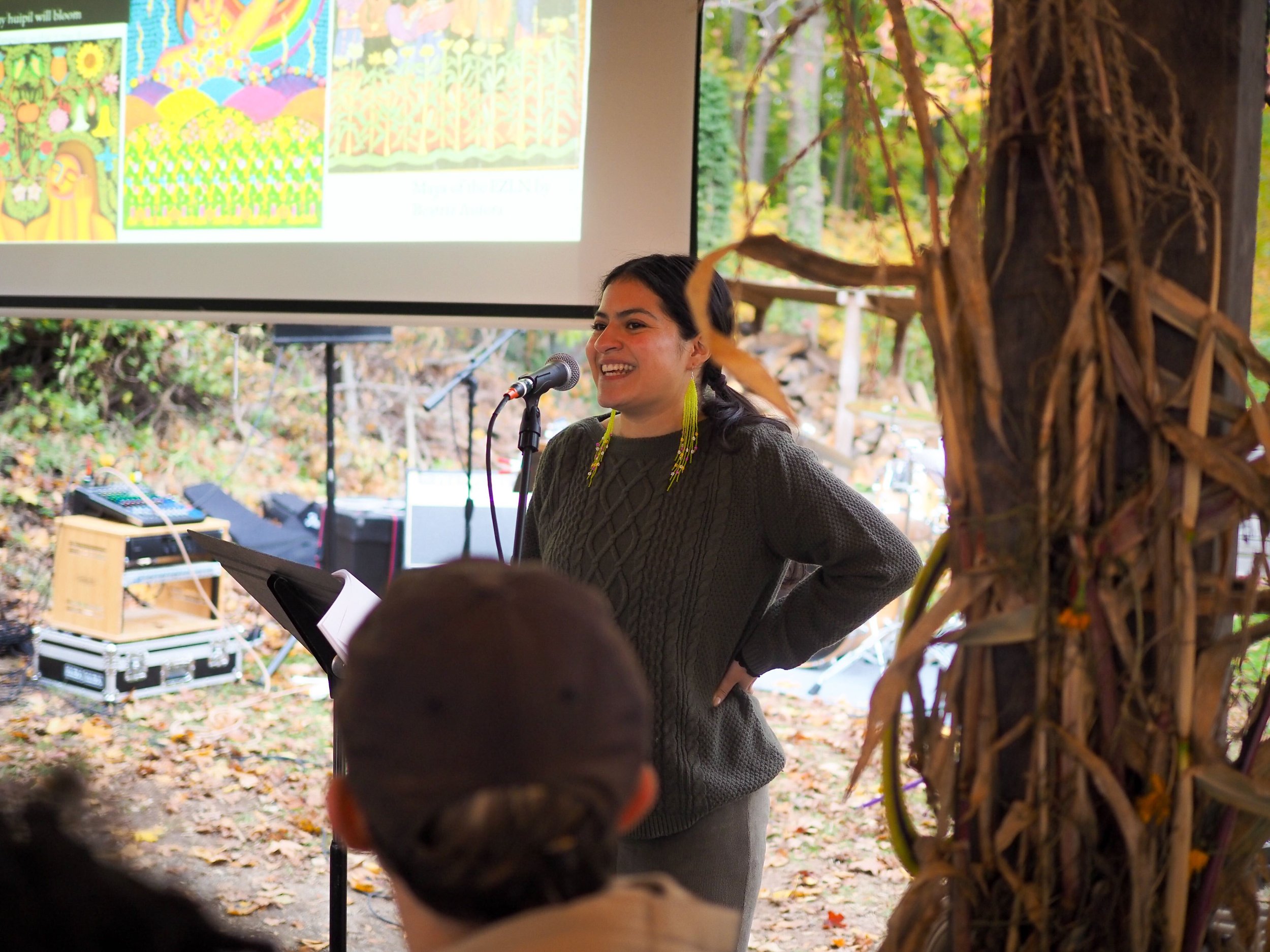
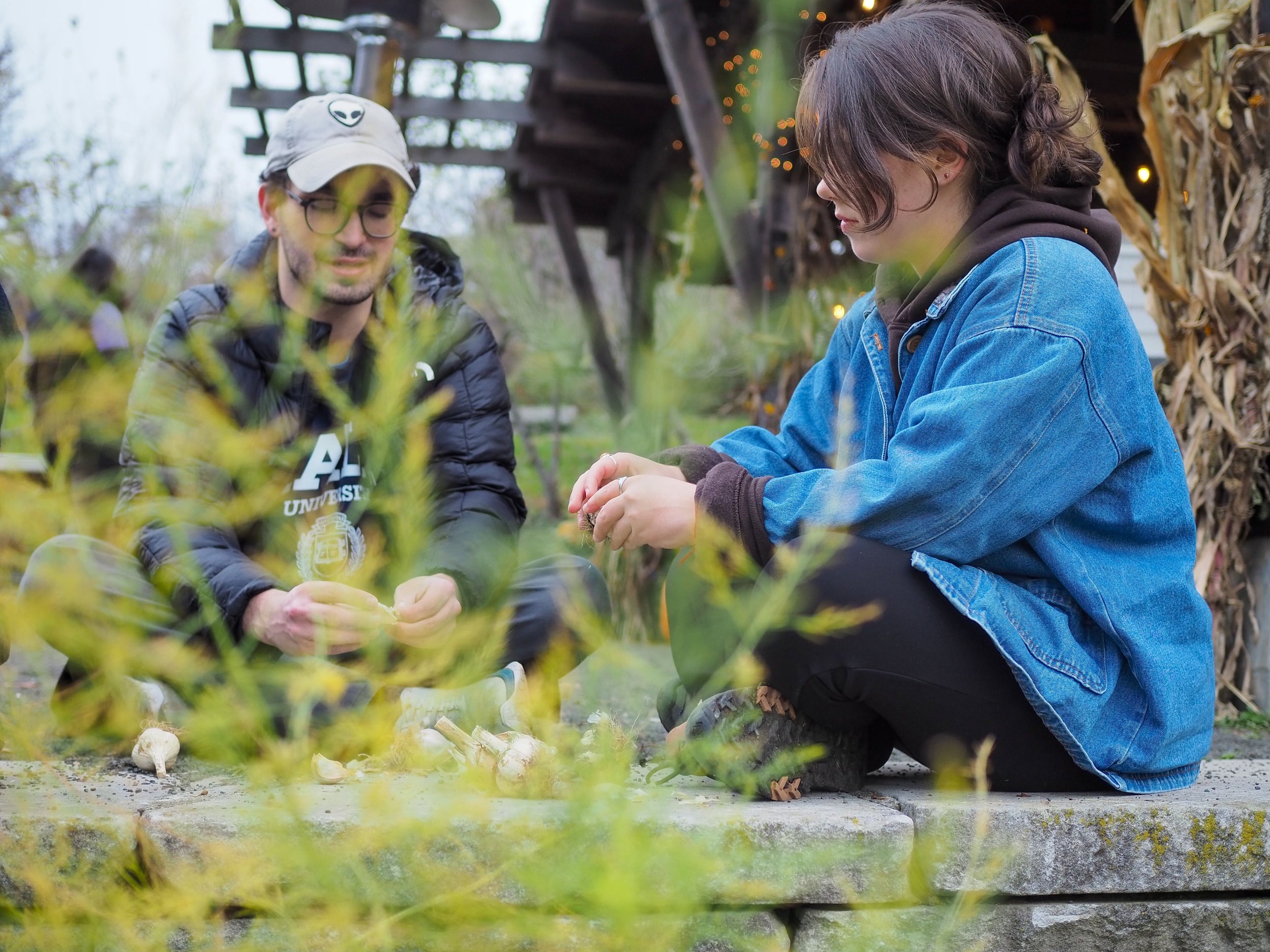
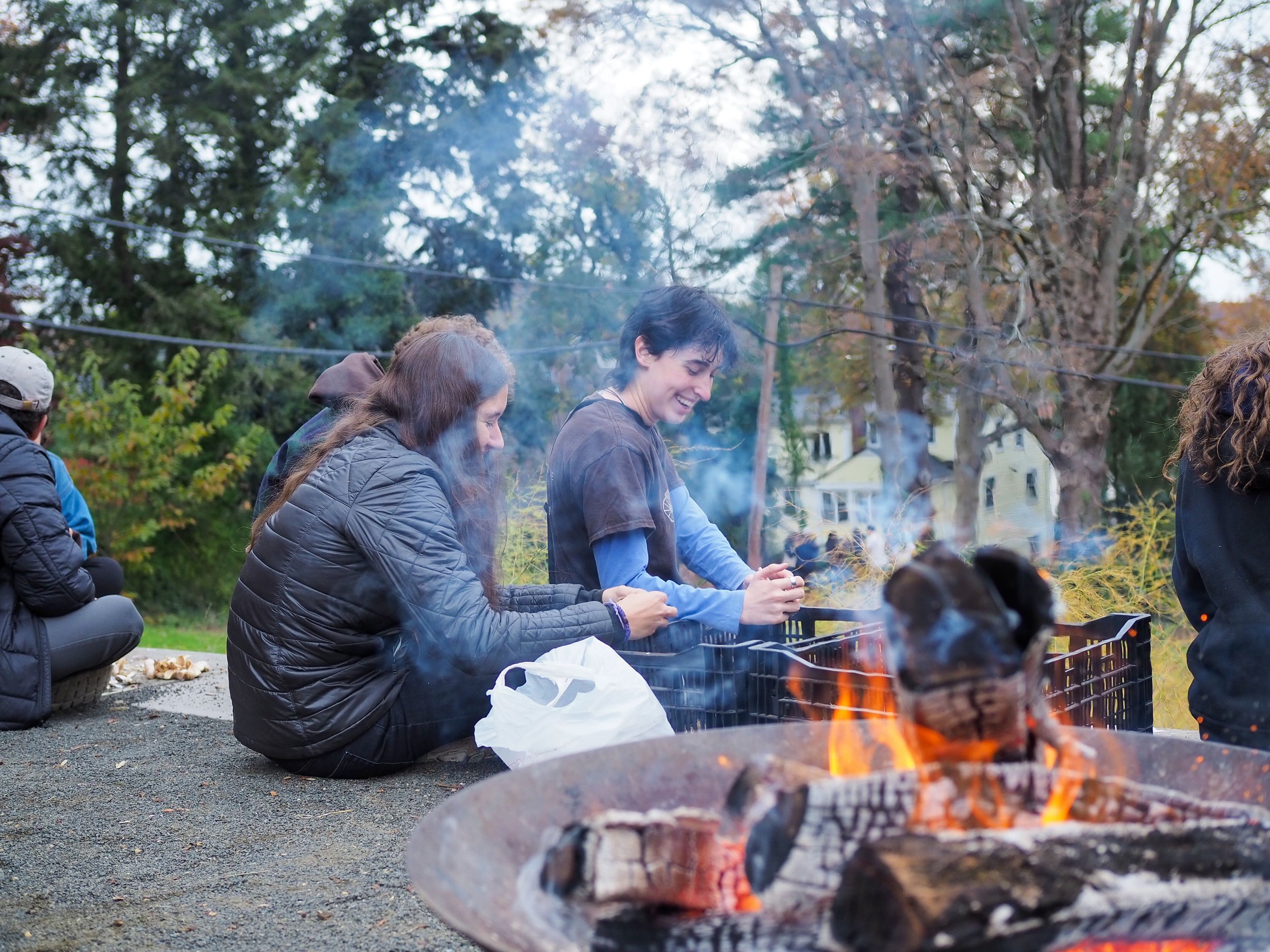
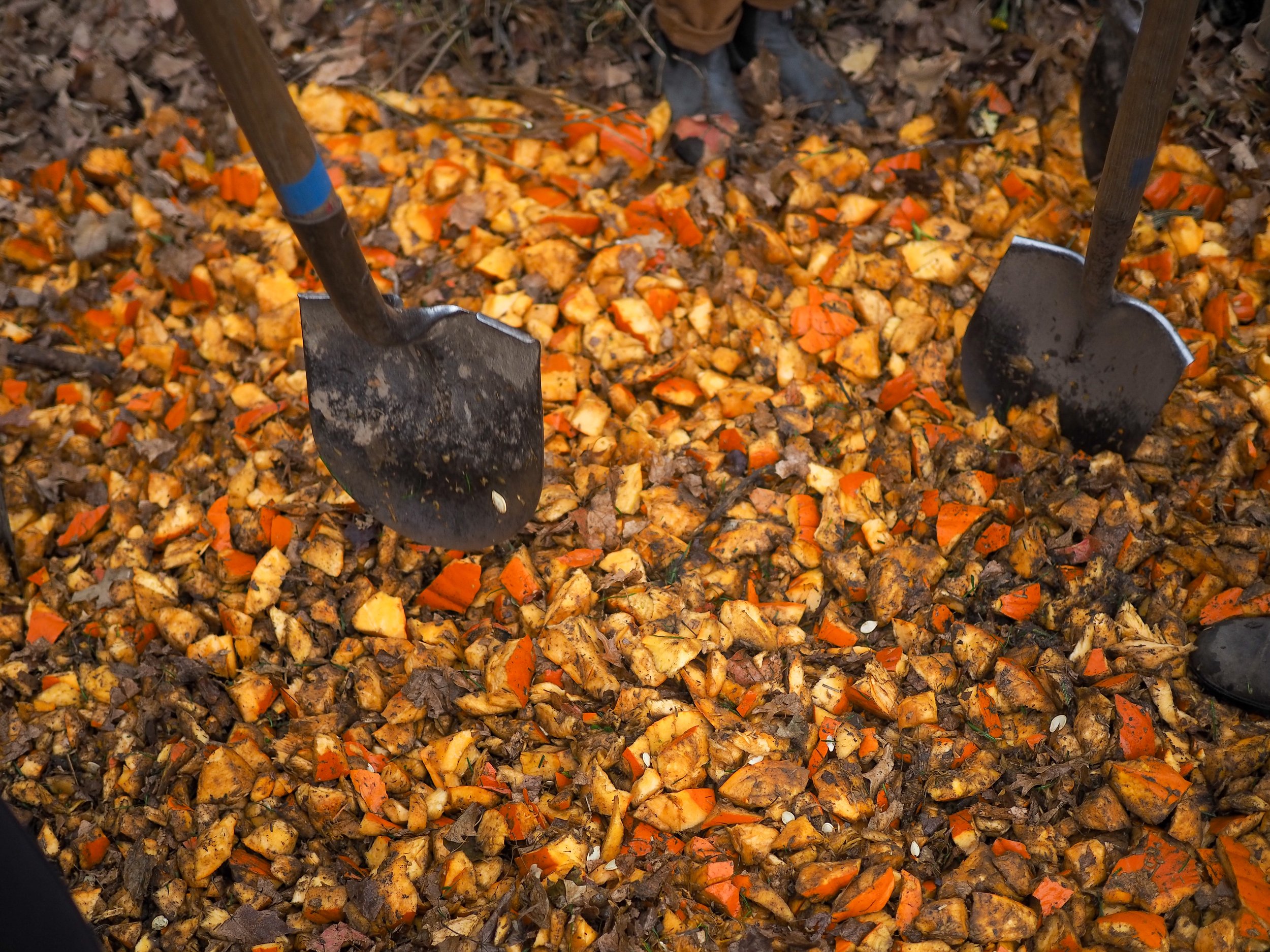
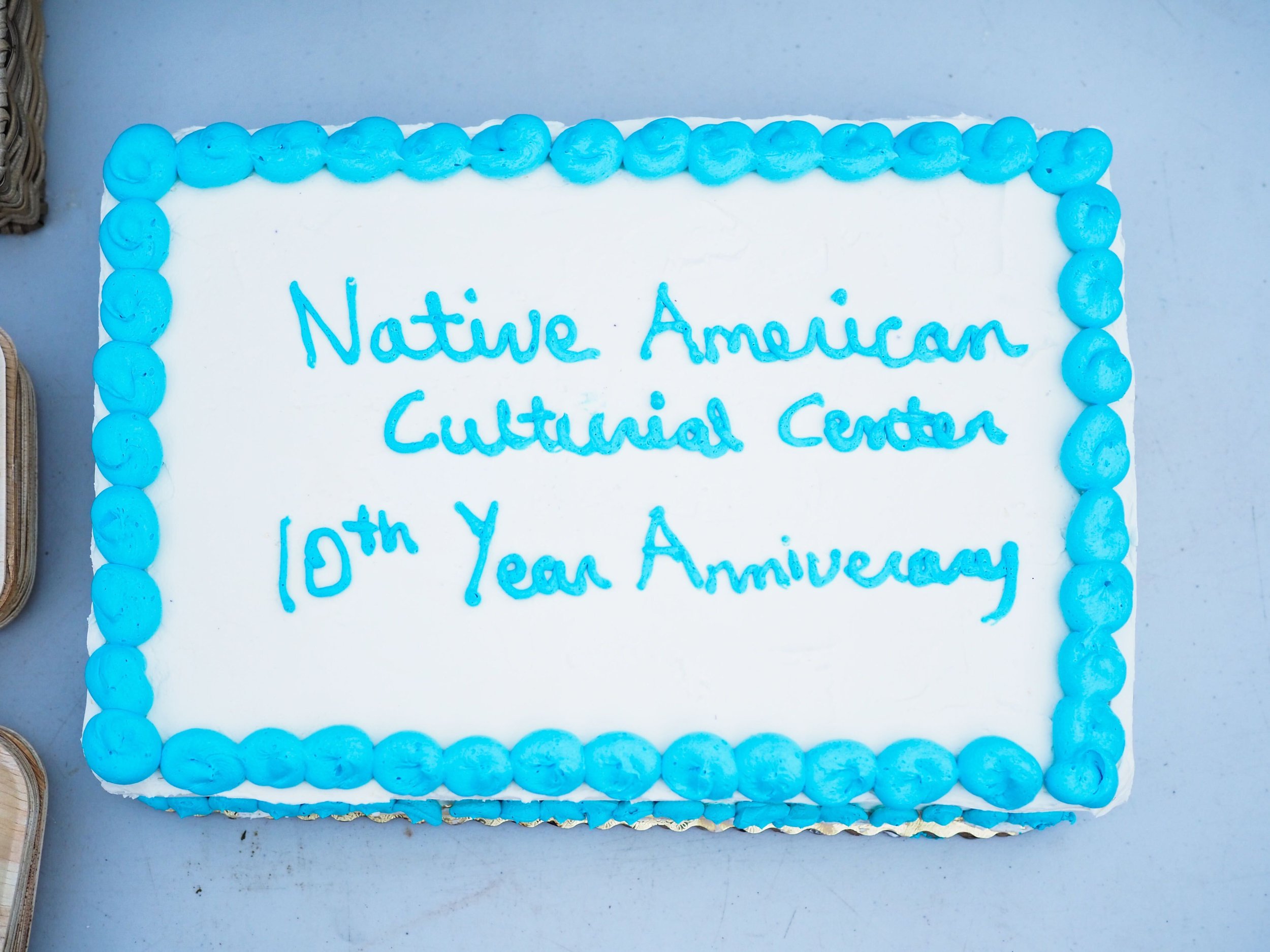
Although the morning was gray and overcast, blue skies emerged from behind the clouds for our final workday of the semester. Students, too, departed from dorm rooms and libraries to gather on the Farm one last time before winter arrives. Half the group took shovels to aging Halloween pumpkins, slicing and dicing the gourds into rich material for our compost pile. Other students spent a meditative hour breaking up garlic heads and sowing the cloves, laying the groundwork for next year's pizza toppings. Many breaks were taken to enjoy carrots fresh from the field, their sweetness amplified by the first frost of the season.
Students then climbed up the hill for a slightly heartier snack, as the pizza team served up pies topped with peppers, squash, and all sorts of delicious vegetables. While they ate, they listened to a fascinating knead 2 know by Lazarus Summer Intern and Native American Cultural Center and YSFP Seedkeeper and Programs Liaison Rebecca Salazar '26. Salazar's talk, delivered in partnership with the NACC’s Henry Roe Cloud Conference, focused on the relationship between Indigenous peoples and plant spirits as shown through the Three Sisters of squash, beans, and corn.
Salazar explained that Eurocentric academic language not only obscures the purpose of practices like shifting cultivation but also misses the spiritual significance of Indigenous knowledge and foodways. She added that using terms like “Abya Yala,” which in the Kuna language means “land in its full maturity” or “land of vital blood,” “presents an ideological resistance to nationalist terms like ‘America’ and reaffirms the view of a unified continent which has its own life and spirit.”
Salazar then articulated how "animacy, agency, and agroforestry" are intertwined through the cultivation of the Three Sisters and the milpa crop-growing system. She described the co-evolution between plants and people as “symbiosis,” not “domestication.” She detailed the history of this co-evolution, its role in Indigenous cosmology, and the medicinal, nutritional, ecological, and political benefits of milpa agriculture. For example, intercropping reduces erosion, while polycultures tend to produce more energy and thus greater food security. Milpa also offers a space for Indigenous resistance to colonization, as well as respect and acceptance for women who face discrimination in neoliberal markets. For more information on Salazar’s research, listen to her podcast reflecting on her summer as a Lazarus Summer Intern.
After the knead 2 know, attendees warmed their hands around the fire pit, enjoyed hot apple cider and cake in celebration of the NACC's tenth anniversary, and watched a beautiful sunset while listening to School of Music professor Ian MacMillen and his band, Scrimshaw Foes. We thank Salazar for leading such an insightful talk and all the attendees who gathered with us for one last workday. Photos from the event by Reese Neal ’25 are available here.
